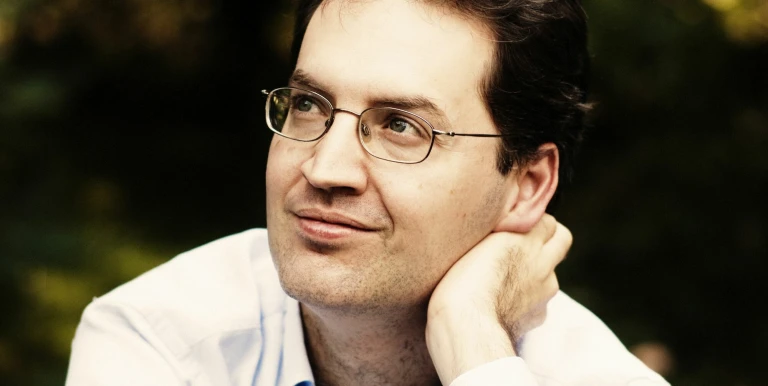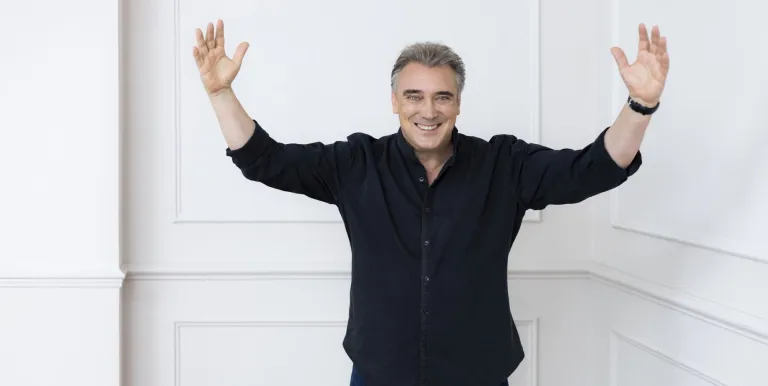one interval
Conductor:
Featuring:
Ravel
Le Tombeau de Couperin
Dohnányi
Variations on a Nursery Song, Op. 25
Mendelssohn
Symphony No. 5 in D major ("Reformation”), Op. 107
Ravel pays tribute to friends who died in the war, Dohnányi pokes fun at morose musicians, Mendelssohn celebrates the Reformation with a symphony – there are exciting stories behind the music on the program. The concert will be conducted by Jaime Martín, a Spaniard who has been a leading conductor of major orchestras from Melbourne to Los Angeles, and whose “infectious enthusiasm for music finds its way to orchestra and audience alike,” according to a reviewer from The Telegraph. The soloist for the evening is one of the most sought-after pianists in the world, Dénes Várjon.
In Le Tombeau de Couperin, Ravel combines innovative sounds with French Baroque meticulousness. The movements are a tribute not only to the composer François Couperin and, through him, to the whole of French Baroque keyboard music, but also to friends lost in the First World War. The author pays tribute to close military acquaintances, including a pair of brothers killed by a grenade. The mood of the piece is nostalgic rather than mournful.
“To the delight of friends of humour, to the annoyance of others,” says Ernő Dohnányi on the sheet music of his versions for children’s songs. This piano concerto-like work, composed in 1914, opens with a long and solemn orchestral introduction of almost Wagnerian depth. The piano’s entrance is the composer’s greatest musical prank, as the soloist responds to the monumental sound with the childlike simplicity of the theme from Twinkle, Twinkle Little Star. In addition to the humour, we also hear brilliant orchestration, exciting harmonies and diverse stylistic parodies.
Felix Mendelssohn received the Bartholdy name when he was was christened at the age of seven. Having always been close to Protestantism, he studied Bach’s sacred works with passion. In 1830, a large-scale celebration was planned for the 300th anniversary of the Augsburg Confession, for which Mendelssohn envisioned a purely instrumental symphony instead of a liturgical choral work. The ceremony was cancelled, but the work was completed. The slow introduction of the opening movement is defined by a motif called the “Dresden Amen”, followed by a fast passage of Beethovenian power. After a lively scherzo and a slow movement reminiscent of a prayer or aria, the finale, based on the sounds of the famous chorale Ein feste Burg, is played without pause. The symphony ends with the triumph of these Lutheran voices.
Presented by: Budapest Festival Orchestra
-
We wish to inform you that in the event that Müpa Budapest's underground garage and outdoor car park are operating at full capacity, it is advisable to plan for increased waiting times when you arrive. In order to avoid this, we recommend that you depart for our events in time, so that you you can find the ideal parking spot quickly and smoothly and arrive for our performance in comfort. The Müpa Budapest underground garage gates will be operated by an automatic number plate recognition system. Parking is free of charge for visitors with tickets to any of our paid performances on that given day. The detailed parking policy of Müpa Budapest is available here.
















